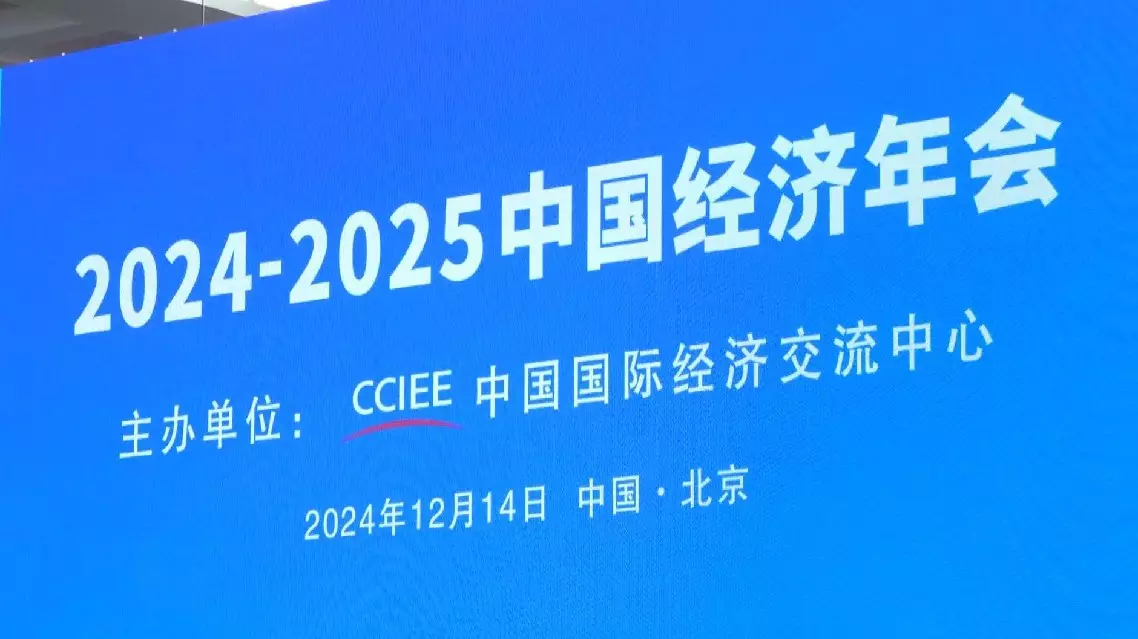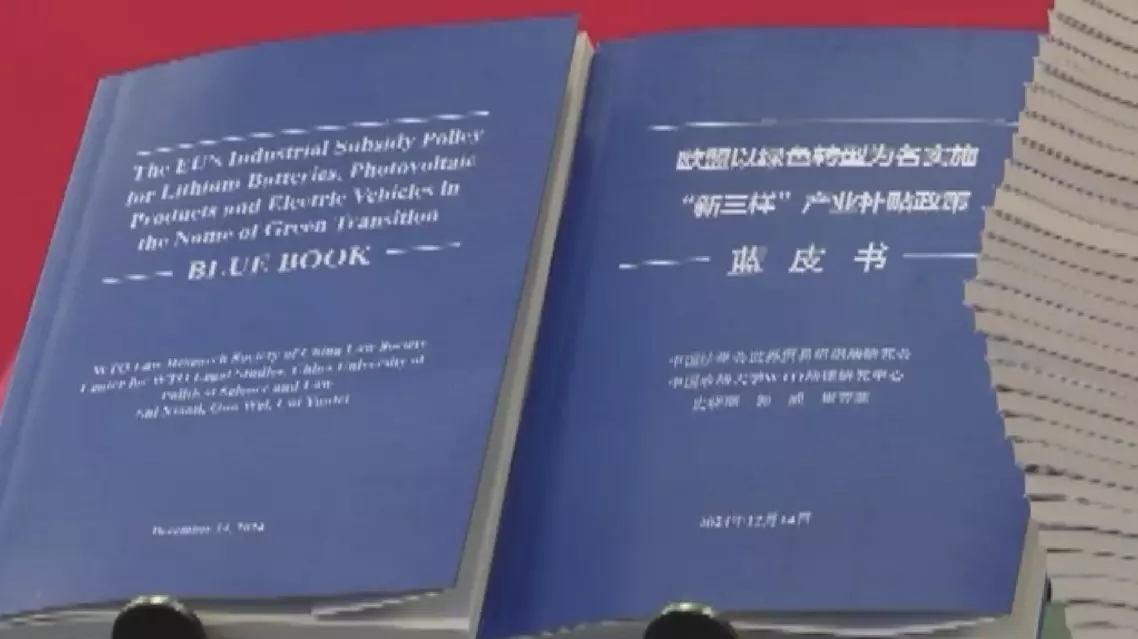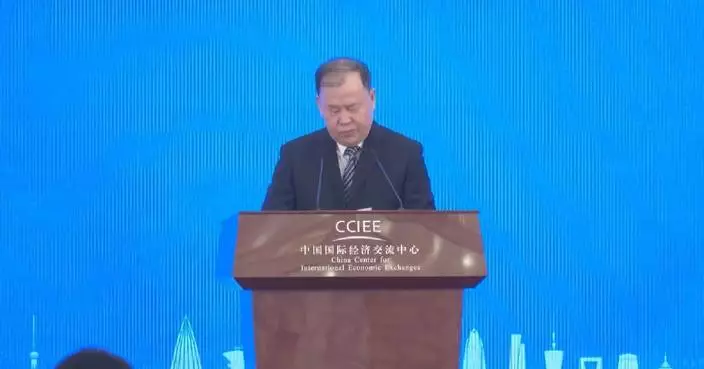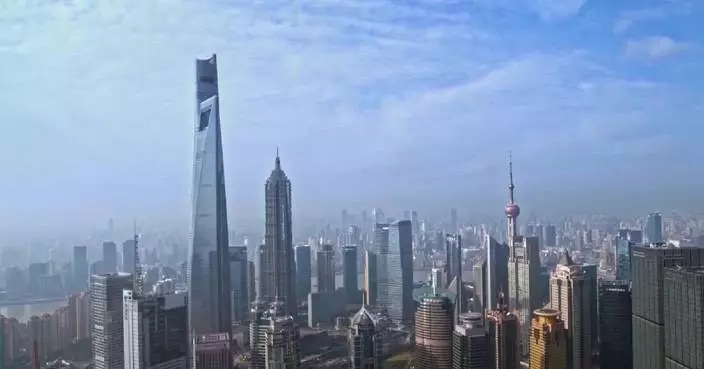Chinese officials have outlined the country's economic priorities at the Annual Conference on China's Economy 2024-2025 held in Beijing on Saturday where they emphasized the need to bolster domestic demand and stabilize key markets amidst a challenging global environment.
As one of the key speakers at the annual meeting, Han Wenxiu, executive deputy director of the Office of the Central Committee for Financial and Economic Affairs elaborated nine aspects of the key economic work in the upcoming year of 2025.
Of the nine aspects, he underlined the importance of revitalizing consumption and enhance investment efficiency next year.
Han said that in the midst of rising uncertainties in the external environment, domestic demand and expansion of consumption should be prioritized to promote economic recovery and growth. He calls for efforts to stabilize consumption of major commodities and effectively expand both consumption and investment.
"New growth drivers should be cultivated. Service consumption needs expansion, while diverse consumption scenarios should be created. It is necessary to positively develop debut economy, ice and snow economy and silver economy. The vitality of private investment should be stimulated, with the need to leverage government investment to effectively drive social investment," said Han.
The debut economy covers everything from the first reveal of a product, the opening of flagship stores, and the launch of new services, to the creation of new business models and technologies. The ice and snow economy capitalizes on winter sports and tourism, while the silver economy focuses on products and services catering to the elderly population.
In a separate speech at the conference, Zhao Chenxin, vice chairman of National Development and Reform Commission, stressed the need to stabilize property market and stock market.
He said efforts will be focused on halting the decline and stabilizing the property market, and reasonably controlling the supply of new land for real estate development.
"Existing land and commercial office space should be revitalized, while promoting the disposal of existing houses [already bought by residents] and pushing for framing a new real estate development model. Relevant fundamental systems should be systematically established. Comprehensive reform needs to be deepened for capital market concerning investment and financing. Bottlenecks that hinder the entry of medium and long-term funds into the market should be cleared, while inclusiveness and adaptability of the institution within the capital market should be enhanced," Zhao said.

China aims to boost domestic demand, market stability: officials
EU is employing double standards in its electric vehicle (EV) policies, unfairly targeting Chinese EV imports with tariffs and subsidies, according to experts at the 17th Forum on WTO Laws and China opened in Guangzhou City of south China's Guangdong Province on Saturday.
One of the highlights was the release of a blue book titled "The EU's Industrial Subsidy Policy for Lithium Batteries, PV Products and Electric Vehicles in the Name of Green Transition", which claims that while continuing to impose anti-subsidy tariffs on imported Chinese electric cars, the EU is subsidizing domestic EVs, lithium batteries and photovoltaic products.
Shi Xiaoli, the book's lead researcher, claimed that while the EU restricts state aid that might cause market distortions, numerous exemptions still exist, which ultimately allows subsidies across these three sectors.
"For example, one of the exemptions is that even if a subsidy in a certain country distorts the EU market, even significantly, if it still aligns with the EU's long-term common interests, it can remain. The scope of European common interest projects is continuously expanding, and it includes these three industries," said Shi Xiaoli, Director, WTO Law Research Center.
The book reveals that EU member states heavily subsidize electric vehicles, with substantial support covering the entire industrial chain.
At the same time, the EU has recently introduced new tariffs of up to 35 percent on imported Chinese EVs. That's in addition to the existing 10 percent duty, which some experts deemed as counterproductive.
"We believe this policy is discriminatory. The EU acknowledges that Chinese electric vehicles have caused no harm to its EV sector. The EU's trade protectionist measures are in fact more detrimental to itself. While it may protect its market in the short term, once these measures are lifted, its technology and other aspects may fall even further behind," said Sun Xiaohong, secretary-general of the China Chamber of Commerce for Import and Export of Machinery and Electronic Products (CCCME).
A lawyer at the event argued that the EU's actions are not typical trade measures, but an attempt to curb China's EV sector growth.
"Subsidies for emerging industries exist in every country, including the United States and the European Union. Also, this time the European Commission initiated the case on its own authority, marking the first use of a special legal rule in the anti-subsidy investigation against Chinese export enterprises," said Pu Lingchen, Partner, Chance Bridge Law Firm.
The EU has given itself quite the ambitious goal - starting in 2035 all new cars sold will be emissions free.
Those involved in crafting of the blue book believed that EVs will be crucial in achieving this target. But they have also said that if Chinese imported EVs come with a higher price tag, then the EU's ambitious plan will certainly face difficulties.

Chinese think tank criticizes EU's double standards on electric vehicles










